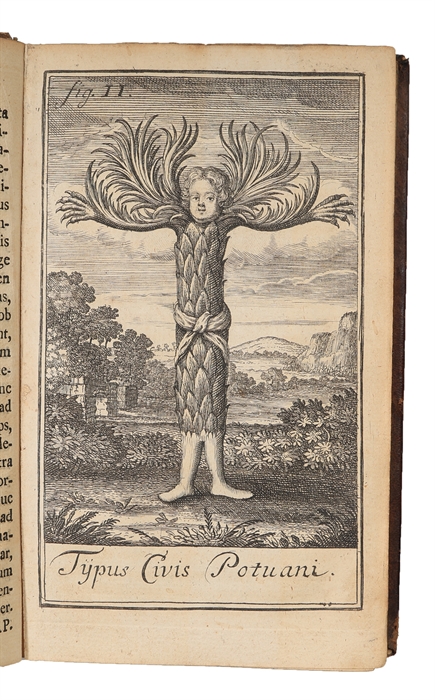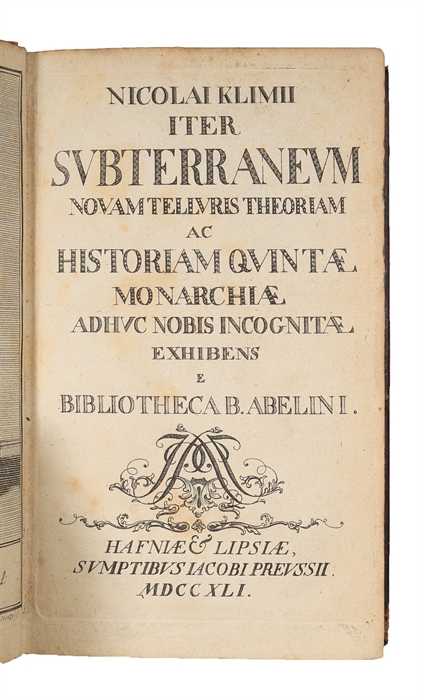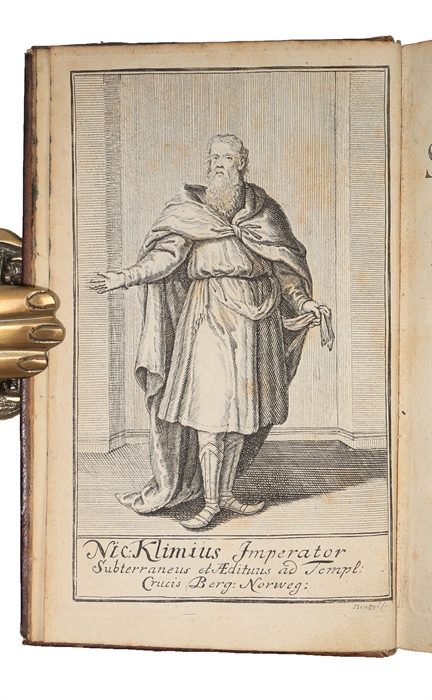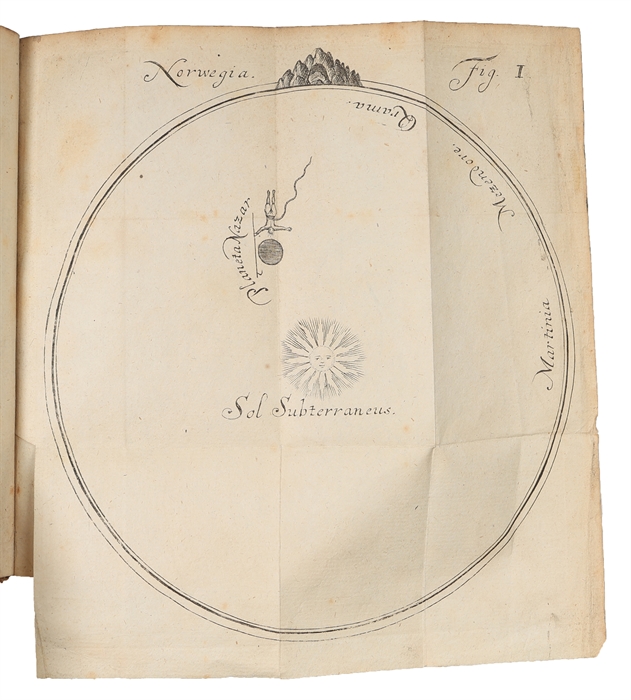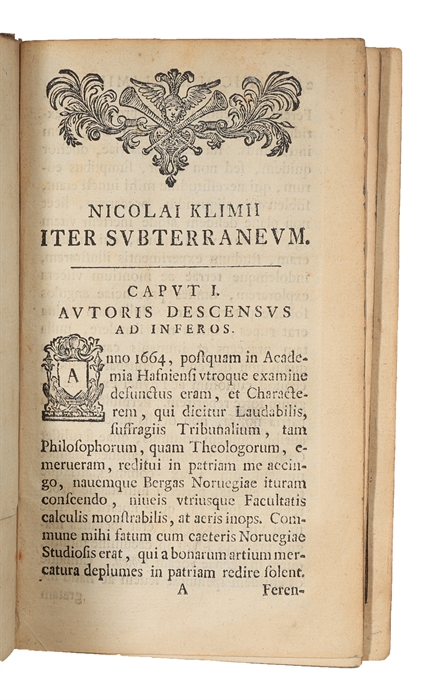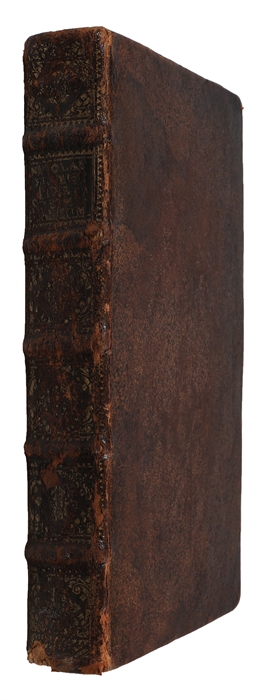-UTOPIAN MASTERPIECE - A JOURNEY TO THE WORLD UNDERGROUND
(HOLBERG, LUDVIG).
Nicolai Klimii iter subterraneum novam telluris theoriam ac historiam quintæ monarchiæ adhuc nobis incognitæ exhibens Bibliotheca B. Abelini.
Hafniæ & Lipsiæ, Jacob Preuss, 1741.
Samt. helldrbd. m. oph. bd. på ryg. Rygforgyldn. slidt næsten væk, nedre kapitæl slidt, hæftesnorene synlige ved forreste indre fals. Indvendig pæn. M. det kobberst. titelbl., det kobberst. portræt og de tre kobberst. tavler, heriblandt foldekobberet over underverdenen. Tavle III ligger løst.
Cont. full calf w. raised bands on back. Gilding on back almost worn off. Cords showing at inner front-hinge, but binding tight. Internally fine with only minor brownspotting. Complete with the engaved frontispiece-portrait and the three engraved plates, including the large folded map of the "Underworld". Engraved title-page.
Originaludgaven. af Holbergs berømte utopiværk, Niels Klim i Underverdenen. Ehr.-M. XII:213 ff.
First edition of this influential utopian mastepiece.
The satirical piece of science fiction by the "father of Danish Literature", the famous Danish professor of Law and Philosophy, Ludvig Holberg, can be compared in style and setup to Swift's "Gulliver's Travels", which was published 15 years earlier. The sharp political satire is not bound to a specific nation, but to the entire human race, and thus gives a picture of human conditions and thought in general in this period. Though the work does not bear a title which directly indicates its obvious utopian connections, as does for instance More's "Utopia", the name of the land of the living trees, in which Niels Klim arrives, "Potu", is very likely to constitute a word game indicating it's obvious literary intention: Spelled backwards we get: "UTOP".
The quaint creatures and societies that Niels Klim meets in the underworld are said to be comparable to the characterization he gives in his Epistles (III) of the different European peoples, and thus we find satirical examples of the English mixed with the Dutch (in Potu) and the French mixed with the Germans (in Martinia). "I det hele er Modsætningen mellem Potu, Ideallandet - det kaldes virkelig saaledes i Bogens Slutning - og Martinia, Karikaturen, ikke blot geografisk, men historisk som mellem det attende Aarhundredes Realisme og det syttende Aarhundredes Formalisme. Potu er Naturrettens og den naturlige Religions Land, Martinia (for ikke at sige Lutheria) Ortodoksiens og Aristokratiets. Aands-Frihed og Stats-Tugt er Bogens Tendens. Da Holberg holdt saa haardt ved den faste Stat, turde han vel vente Absolution for at han ikke opgav den frie Tanke." (Vilh. And. II, p. 133). (= "All in all the contrast is between Potu, the ideal country - it is actually called so in the end of the book - and Martinia, the caricature, not only geographically, but historically as being between the realism of the 18th century and the formalism of the 17th century. Potu is the country of natural law and natural religion, Martinia (not to say Lutheria) is that of orthodoxy and aristocracy. Freedom of spirit and state-discipline are the tendencies of the book. Since Holberg stood so strongly on the dominating state, he ought to have expected absolution for not giving up free thought.").
Ehr-M.: XII, 213.
Order-nr.: 27564

